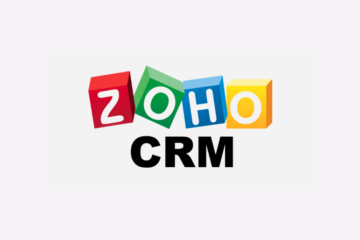
Inbound marketing is the process of establishing a website “hub” that attracts visitors naturally to a company’s content through search engines, blogging, and social media. This approach attracts an audience of content consumers to the service through functional content on a blog or social media channel that is relevant to the questions and timing that a consumer may have on the subject content. As individuals or companies produce viable content over a period of time, their content leadership on the topic will convert inquiring readers into website visitors. Not only will these visitors begin to return on a regular basis, looking for new strategies, ideas, and forms, but they will become an internal referral source to their friends, family, and acquaintances through social media. Highly functioning websites will utilize a call-to-action through various landing pages that discuss the company’s expertise and provided services to new and returning visitors. Through the completion of these online call-to-action forms, visitors turn into leads, where they are entered into a CRM (customer relationship management) database that provides regular emails and workflow strategies. Leads turn into customers, where the company can then provide smart content, specialized services, post-purchase surveys, and engage in social monitoring, turning customers into promoting advocates for their product or services. But most importantly, throughout this process, inbound methodology begins and ends with content. By publishing timely content through many accessible locations in any single user, the company’s marketing message becomes relevant and helpful to their customers, not disruptive.
Alongside the created and curated content, companies must also utilize search engine optimization (SEO) techniques for helping customers find the accessible location, i.e. a company’s website. Being listed at the top of search engine results drives traffic to the company’s website (the “hub”). Additionally, social media sites are created to tell success stories, highlight current projects, drive brand recognition, and most importantly, drive traffic back to the source of the content leadership at the website. With SEO and social media driving traffic to the hub, a company’s inbound marketing strategy will begin to produce organic results; that is, in this scenario, the results are leads that they didn’t have to pay for from any third-party advertiser. This is critical to return-on-investment (ROI) measures within the company, which is what all marketing managers are responsible for monitoring and controlling. Because inbound marketing investments are very inexpensive, companies can test market different messages in a relatively free space to find out which messages most resonate with its target audience. Once these messages are identified, then they can be moved into the paid message space with a guarantee that they will work because they have already been tested out in the organic message space. This is the penultimate value of inbound marketing, it now only provides organic leads for your company, but it also increases the effectiveness and ROI of all of your paid messaging as well. We will discuss this in more detail later, but it is important for you to get a holistic perspective of the usefulness of this strategy now. The skill sets you are about to learn are extremely valuable, literally!
The inbound marketing paradigm revolves completely around this practical process of driving organic results (and eventually, paid results). In the perfect world, we would prefer that all leads are organic and driven completely free of charge based off our content leadership. But due to the changing landscape of social media and SEO algorithms, this is becoming less and less plausible. Companies like Facebook and Google are continually changing their algorithms, which impacts the entire landscape of knowledge acquisition. For this reason, as we described in the intro section, The Digital Engine takes the approach that digital marketing management can only be taught from a strategic perspective, rather than a tactical one. The terms strategy and tactic are often confused among many firms. A strategy is a plan of action or policy designed to achieve a major goal or overall aim. It relates to the identification of a long-term or overall aim or interest, and the means of achieving them. Alternatively, a tactic is one or more specific tasks composed as a conceptual action aimed at achieving the strategic goal. In the hierarchical order, the strategy is the big idea, and the tactics are the tasks needed to achieve the big idea. For example, your firm may have a strategy of creating brand awareness, but to achieve that goal, the firms must tactically build a brand presence in a social community by developing brand profiles, posting daily to these channels, and respond to comments and questions.
The tactics of day-to-day social media management are constantly changing, as any practitioner can attest: What works today, may or may not work tomorrow! Therefore, we consistently emphasize the strategic frameworks that can drive successful digital marketing campaigns. It is imperative that we all keep this mindset throughout the entire book and campaign process. If you can learn the strategic mindsets and frameworks that lead to successful campaigns here, then these are the tools that will assist you in being productive digital marketing managers in the real world, no matter what tactical changes digital platforms like Facebook and Google may make in the future.
At The Digital Engine, we spend a majority of the time dedicated to our assignments to challenge you to think critically about your topical domain. How are your strategies going to work for your target market segment, and what if they don’t? We discuss analytics and how to know if they are working or not, as well as teaching you how to pivot to content that is working when needed. Whether you are an instructor or a person interested in learning new skills sets, we have a demo course that will allow you to work with our content and courseware navigation to help you make a decision on whether or not you want to take our online course. If you are still undecided and have general questions, feel free to contact us. We would love to answer any questions you may have.




0 Comments